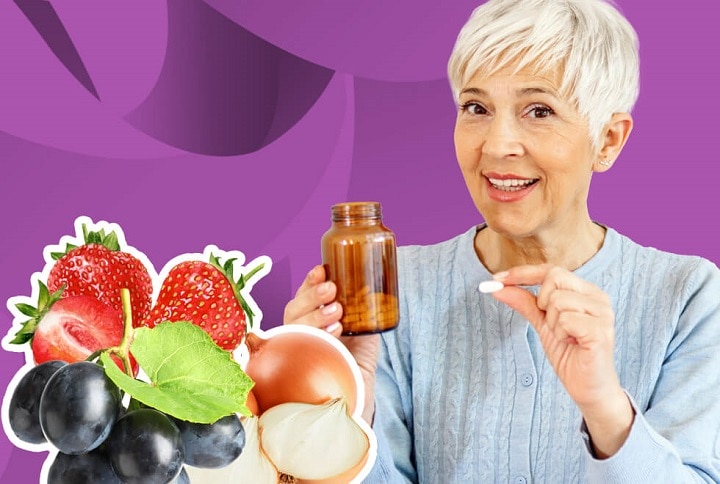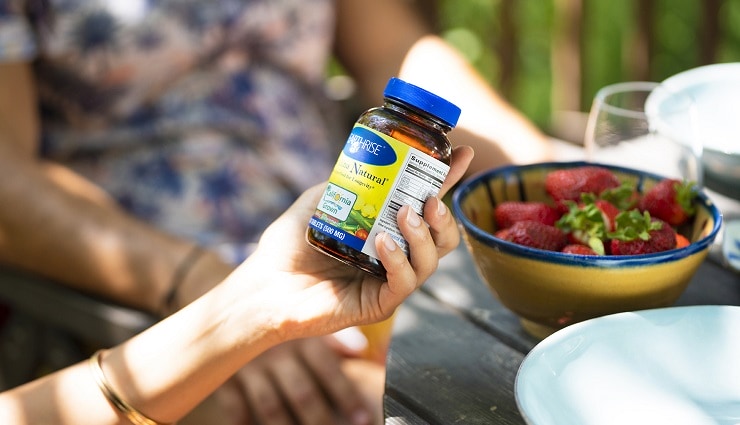Today, the use of nutritional supplements has gained many supporters. Many people think that taking supplements can provide all the deficiencies and needs of their body and help them live healthier and longer lives, but is this idea correct? What supplements prevent us from getting diseases and make us live longer? In this article, we answer this question based on scientific studies and examine the role of supplements in maintaining health and extending life.
The role of supplements in increasing longevity
According to Dr. Nir Barzilai, director of the Institute on Aging at the Albert Einstein College of Medicine, supplements have a positive effect, albeit more on the economy than our health. The estimated $39 billion global supplement market supports many companies and workers, but whether it also supports our health is an important question that is not easy to answer.
Barzilai and other longevity experts say the supplements we choose to live a long and healthy life are not the same for everyone and should be tailored to each person and time. Dr. Andrea Maier, director of the Center for Healthy Longevity at the National University of Singapore, also says that supplements should be determined based on a person’s biology.
According to Dr. Mayer’s research, many supplements do not have the effects they claim on their labels, and everyone’s reaction to each supplement is slightly different from others. Although he recommends supplements to some of his patients in private and public clinics in Singapore, he takes a very personal and scientific approach to prescribing them.
With age, the body’s ability to absorb nutrients decreases, so the wise and correct use of supplements may increase the lifespan of some people. In the following, we introduce 5 of the most popular supplements that have been scientifically verified and describe their effects on the body.
The best supplements to increase life
1. Vitamin D
Many aging and longevity experts, including immunologist Anthony Fauci and biohacker Bryan Johnson, take this supplement.
Vitamin D plays a role in bone density and calcium absorption. We get most of our vitamin D from sunlight. Therefore, many prefer to take vitamin D supplements in winter when the light is less. Of course, you can get vitamin D from a diet that includes fatty fish such as salmon, fortified milk, and egg yolks.
Brasilia says that although her vitamin D levels are low, she does not take vitamin D supplements. He believes the only problem vitamin D helps with is osteoporosis and says, based on a bone scan, he has thick bones and doesn’t think he needs vitamin D supplements.
Although vitamin D supplementation is widespread, you should know that people with adequate bone health may not need additional vitamin D.
2. fish oil
Fish oil is an excellent supplement for heart health, which improves blood cholesterol with a large amount of omega-3 fatty acids. There is also evidence that fish oil, due to its anti-inflammatory properties, helps prevent swelling and arthritic pain and improves them.
Of course, you can get a lot of omega-3 by consuming walnuts, salmon, or tuna. Consuming omega-3 found in fish and nuts also provides many other nutrients. For example, brains are a great source of fiber, magnesium, and vitamin B6; salmon is excellent for improving vitamin D and vitamin B12 stores.
3. NAD+ boosters such as NR
Nicotinamide adenine dinucleotide (+NAD) is a vital enzyme that helps produce energy in the body, maintain tissue health, repair DNA, and improve immune system function and metabolism.
Nicotinamide riboside (NR) and nicotinamide mononucleotide (NMN) are precursors that allow us to produce more NAD+ and have become popular antiaging supplements.
According to the US Food and Drug Administration (FDA), because NMN is under investigation as a drug, it cannot be marketed as a dietary supplement. However, NR can be obtained as a supplement. According to some studies, NR has good anti-inflammatory properties and may benefit our health in old age.
4. Fisetin
This chemical compound is found in strawberries, persimmons, onions, and light-colored apples. Fistin is an excellent anti-inflammation agent that cleans old and toxic cells created with aging.

Longevity researcher Paul Robbins says he takes Fistin every two weeks, and his “loud” knee always feels better after taking it. Other senior researchers are also excited about Fistin’s potential to improve conditions as diverse as arthritis and Alzheimer’s. However, many experts have warned the public that it would be better to wait a few years before we learn more about the benefits and risks of taking Fistin at home.
5. magnesium
Magnesium is a wonder mineral for muscle, bone, nerve, blood pressure, and cell health. Longevity expert Dr. Peter Attia takes several different types of magnesium every day for healthy aging. Of course, you can also get a lot of magnesium by having a healthy plant-based diet full of beans, bananas, avocados, nuts, and green leafy vegetables like spinach.
The importance of a healthy diet and exercise program
Gerontologists have not agreed on supplements, but they all agree that a healthy diet of whole grains, legumes, fruits, and vegetables benefits older adults. Despite this, many people still take supplements. Meyer believes that this is mainly about reducing anxiety because, with no approved antiaging drugs and no recommended supplements to prevent the most common age-related diseases and causes of premature death, such as cancer and heart disease, by buying a pill, We feel that we can guarantee our health.
Meyer doesn’t take any supplements and says a healthy vegan diet gives her body everything it needs. Barzilay only takes a homocysteine supplement containing folic acid, vitamin B, or something similar. He says that taking this supplement is due to a specific genetic imbalance in his body. According to him, we should not take every vitamin recommended by others.
The effect of supplements on our health is complex and not the same for different people. Of course, if supplements are taken wisely and correctly, especially considering the decreased ability to absorb nutrients with age, they can increase our lifespan.
Conclusion
With increasing age, it becomes difficult to absorb essential nutrients in the body, which is when supplements are used. The critical thing to know is that supplements can increase our lifespan if used correctly and wisely, and blind consumption without evaluating specific individual needs may have the opposite result. According to experts, we should not use supplements without knowing the needs of our bodies. Understanding your needs and consulting with a professional before incorporating supplements into your daily routine is essential. Do not forget that improving health and well-being does not have an all-inclusive approach.
Warning! This article is only for educational purposes;d to use it, it is necessary to consult a doctor or specialist.



